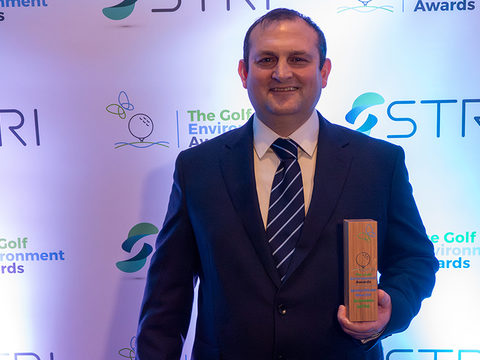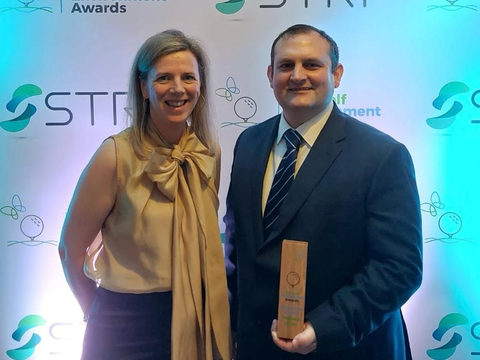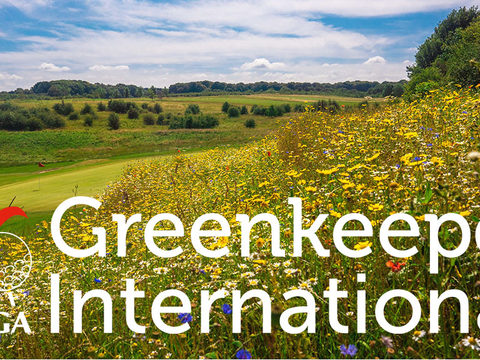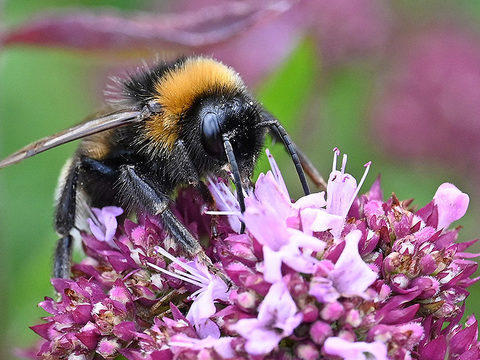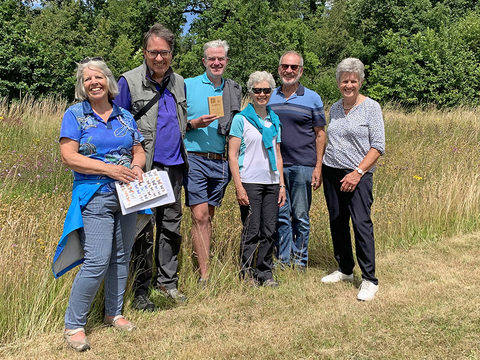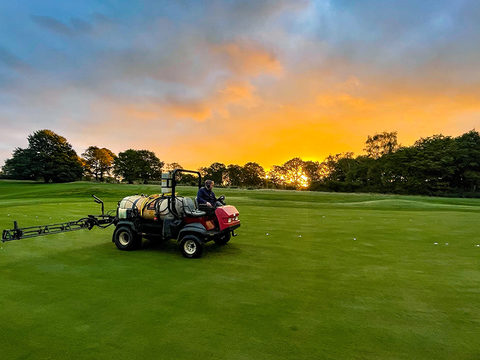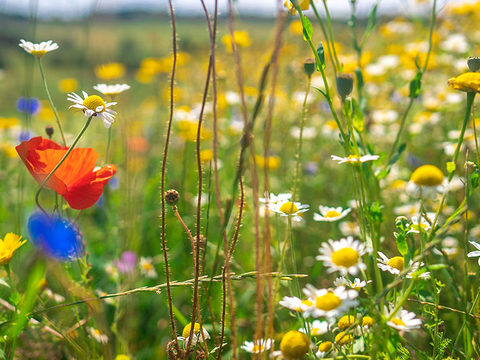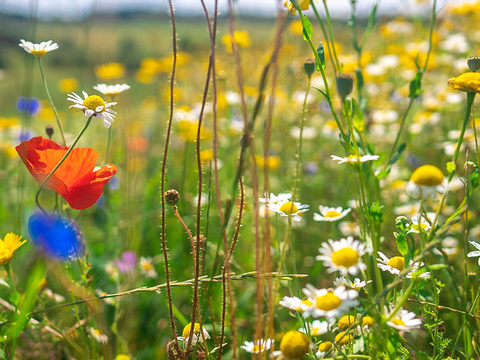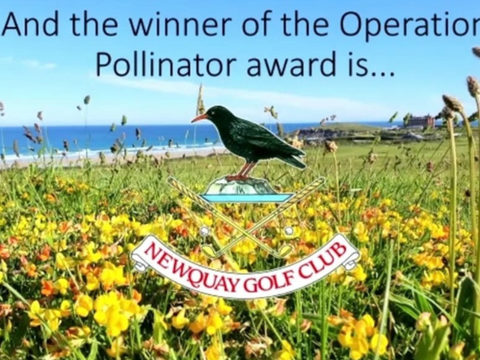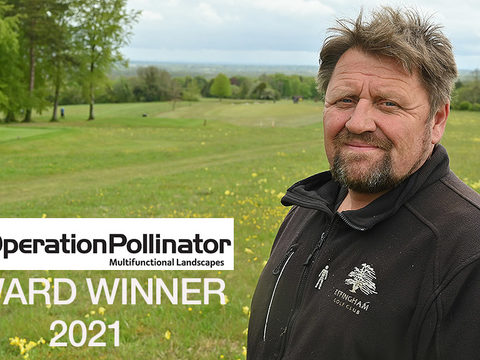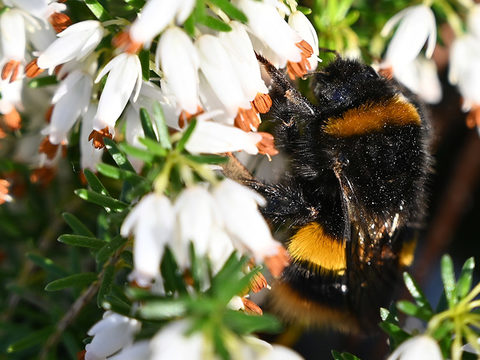Operation Pollinator Awards 2018 - And the Winner is Kingsdown Golf Club
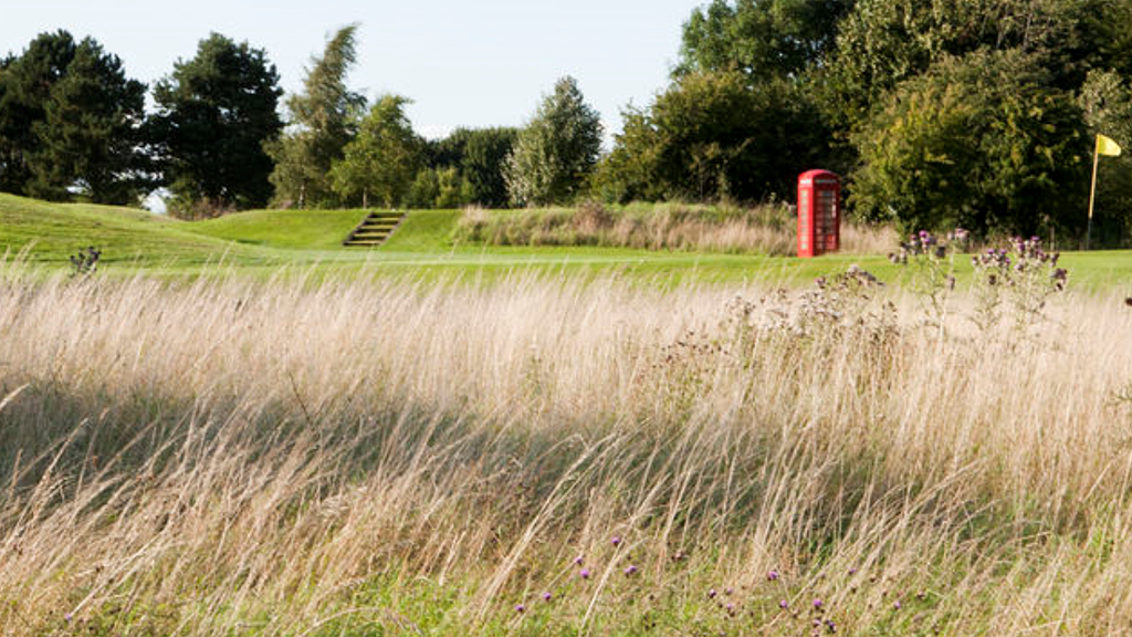
The Operation Pollinator Award 2018 has been won by Kingsdown Golf Club, where the club has introduced extensive native wildflower areas, often with the help of local primary school children.
Sophie Vukelic, Environmental Consultant with STRI and part of the Golf Environment Awards Judging panel, gave her views and thoughts on all the finalists, along with Top Tips of how they achieved their success:
Kingsdown Golf Club initiated an excellent Operation Pollinator scheme involving the help of pupils from Corsham Primary School. The Club's aim was to introduce the children to environmental stewardship, the sportsturf industry, and the game of golf - and how all three are positively linked.
Not only did Kingsdown's Operation Pollinator project provide for nectar and pollen loving insects, it also provided a great golf education to the younger generation.
Tom Freeman, past deputy at Kingsdown Golf Club (has since moved to High Post, near Ringwood) prepared three plots within the long rough on the academy course.
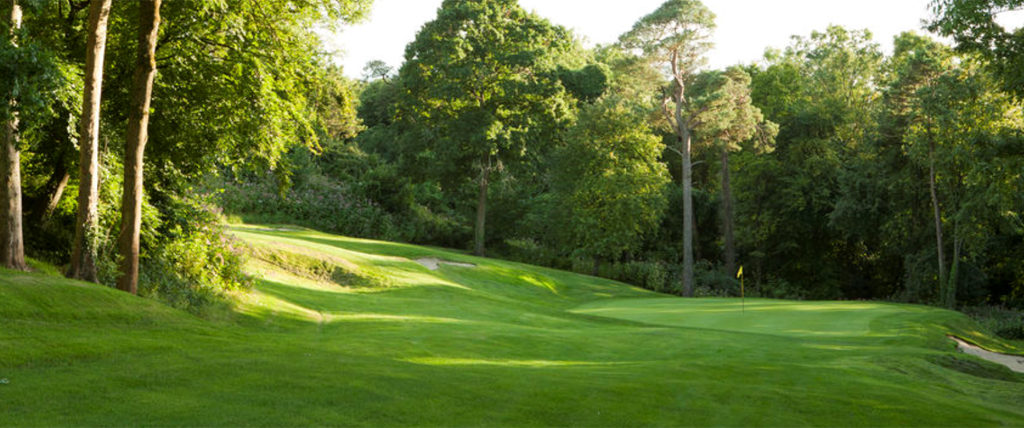
The greenkeeping team used used an Amazon Profihopper to cut and collect existing grass in a 400m2 area. They then used the same machine to scarify to a depth of 2mm several times, thinning the sward and creating bare areas ready to accept seed.
Due to the high percentage of fescue already identified there was no need to apply a graminicide although an application of Primo Maxx was applied to slow grass growth.
The children sowed appropriate wildflower seeds (damp loamy mix with additional cornfield annuals) in three groups.
The children were also offered a short talk about the benefits of pollinating insects and wildflowers on the golf course by Tom and with help from the assistant pro and club captain.
The day also incorporated a trial at chipping and putting on the academy course to promote the game of golf to young children. One of the children commented ‘it was the best school trip they have ever been on’.
Tom had the initiative to contact local wildflower seed suppliers and was able to gain free seed from DLF. He also utilised Syngenta’s bee id cards and mini wildflower packs to give to each of the children.
It is hoped that by creating wildflower and out of play ecological areas, the golfers experience will be enhanced as well as lowering maintenance costs. This initiative will generate beneficial links with the club and the local community, promoting Kingsdown, the game of golf and the biodiversity of the golf course.
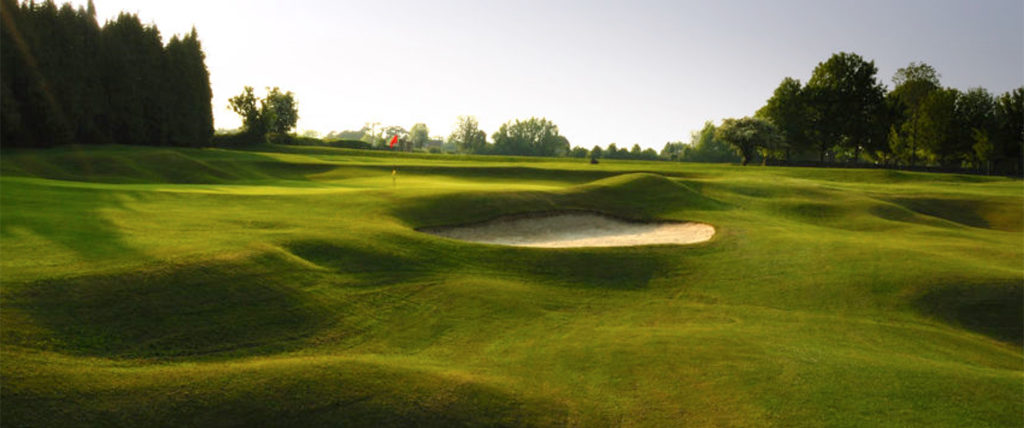
Tom received the Award for Kingsdown Golf Club from Bob Taylor, Head of Ecology at the STRI (below).
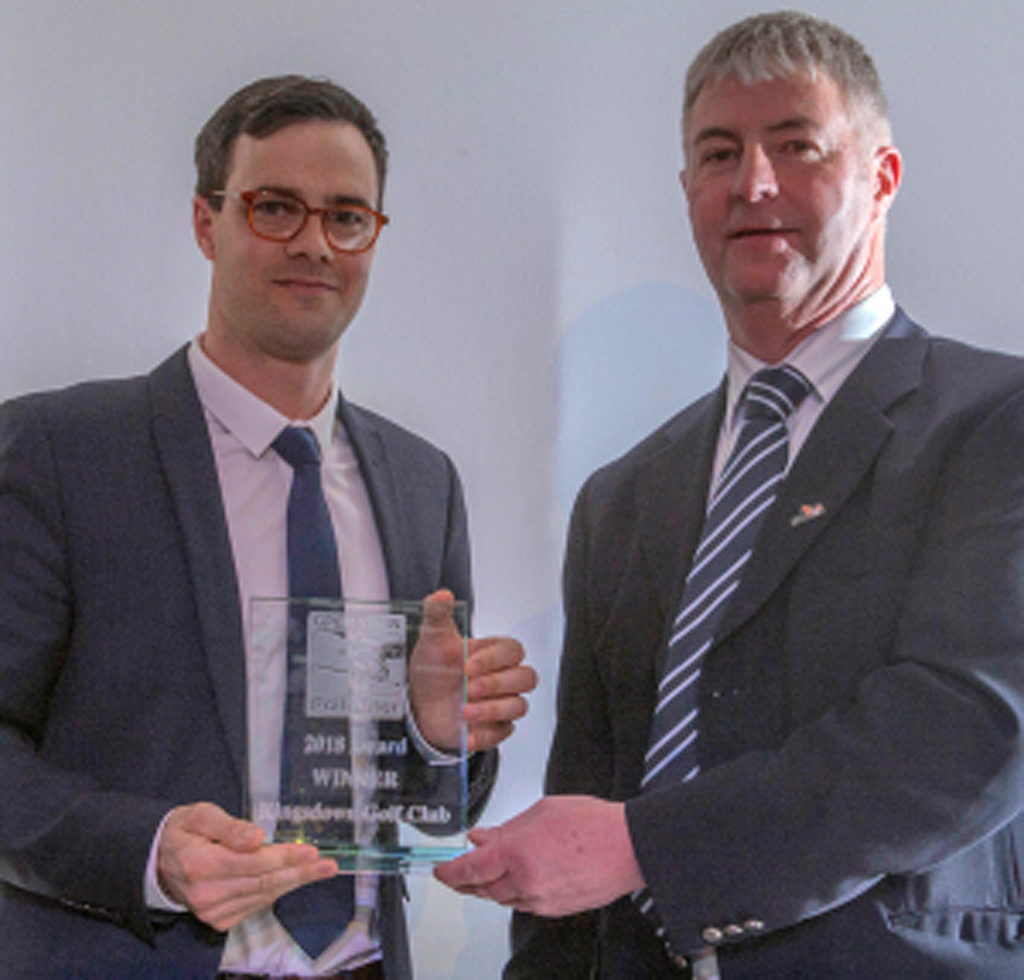
Other finalists in the Operation Pollinator Award category of the Golf Environment Awards included: |
Bowood Golf Club, Wiltshire |
Warrington Golf Club, Lancashire |
Ufford Park Golf Club, Suffolk |
Warrington Golf Club
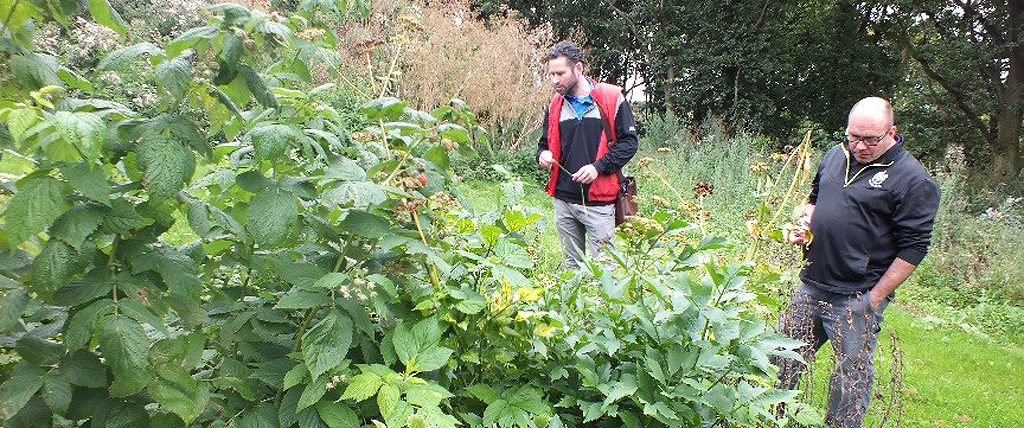
At Warrington Golf Club, the greenkeeping team, headed by Course Manager, John McCloughlin, have utilised a small area by the maintenance facilities that hitherto had no value, to create a pollinator haven, using their spare time to make additions where possible.
A wildflower wall has been established to provide both aesthetical and ecological benefit in a quiet but visible area, previously made up of unfavourable habitat. Golfers pass by the wildflower wall when walking from green to tee and often pass comment.
- A herb and fruit garden including raspberry, various mints, thyme, basil and curry plants also attracts an array of pollinating insects as well as providing local produce to be used in the clubhouse kitchen.
- A woodland to the rear of the maintenance facilities has also been managed to improve habitat for bumblebee and carpenter bee species. An innovative bumblebee hibernation box has been installed to provide an overwintering site along with several log piles and bug hotels, useful for mining bees and other solitary bee species.
- Managed rough grassland is increasing in diversity year on year following cut and collect works in the spring and autumn which is helping to thin coarse grass species and encourage native wildflowers.
- Newly installed heather turf will also provide additional nectar and pollen later in the year, when most other wildflowers have flowered and set seed.
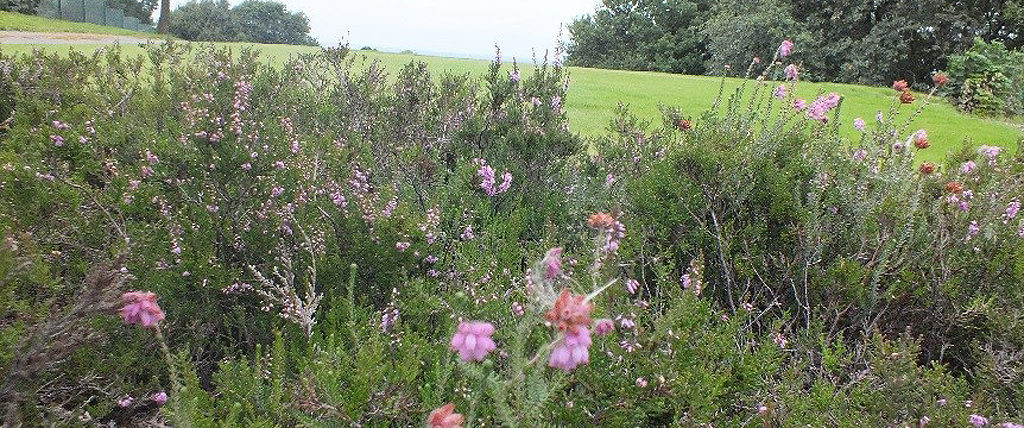
The course is now abundant with moths, butterflies, bees and hoverflies following a conscious programme of enhancing available nectar and pollen rich plants.
Bowood Park Golf Club
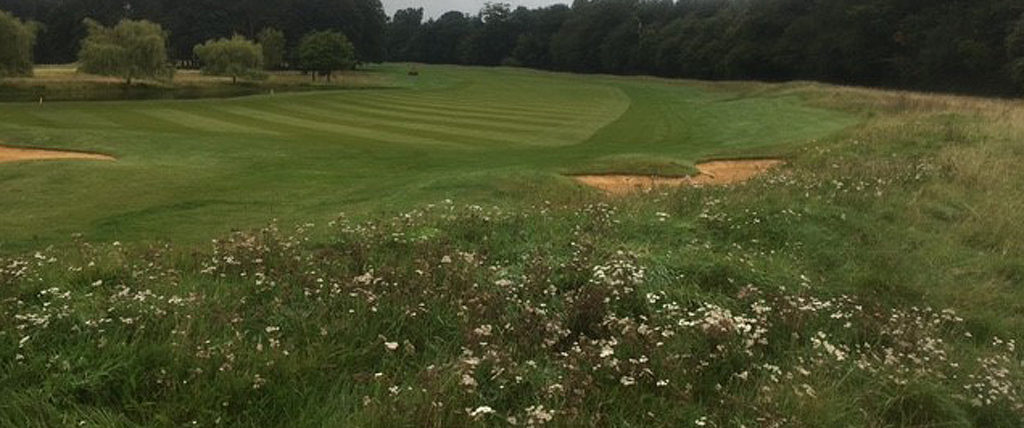
In Wiltshire, Jaey Goodchild, course manager at Bowood Golf Club, has been undertaking dedicated management of extensive areas of grassland and wildflower habitat throughout the golf course for the last four years, to reduce the concentration of coarse grasses and promote more favourable grass species and native wildflowers.
Grazing by sheep has been the key management technique over the last year to great effect.
- Sheep were initially placed in an area of 4 ha which was later extended to cover around 20 ha of out of play rough. 500 sheep were split into two groups and then rotated across the sites over a four week period. The club hope to undertake the same management next year due to its terrific success.
- The club have also altered their irrigation system to ensure that no unmown grasslands are irrigated to further improve the quality of those areas, promoting finer grasses and reducing irrigation costs.
- No wildflower seeds have been sown due to there being a substantial natural seed bank, simply in need of exposure, which the above management techniques have allowed.
- Prominent wildflower species throughout the grasslands and encouraged through management include ox-eye daisy, common knapweed, St Johns wort, mallow, wild carrot, yarrow, meadow vetchling, birdsfoot trefoil, sheep sorrel and various thistles.
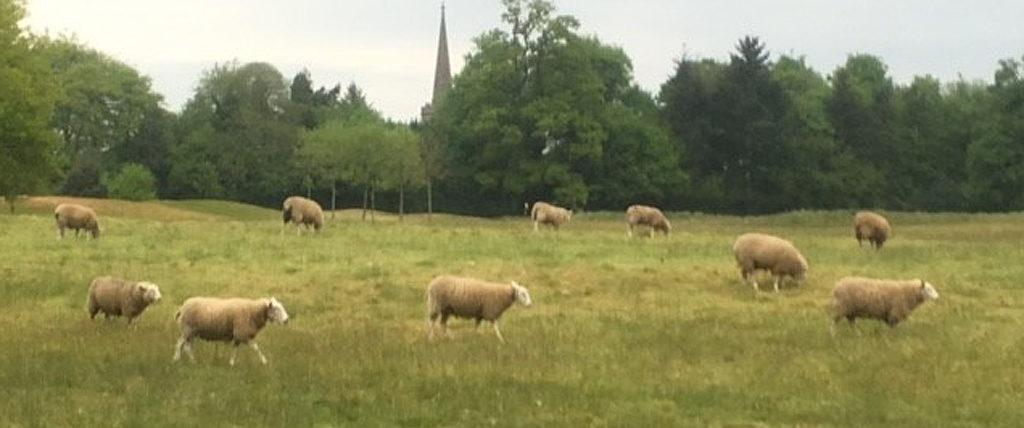
Jaey has experimented with various techniques over the last few years, creating some areas more suitable to golf playability and some more conducive to biodiversity and nature conservation, ensuring a balance between wildlife and golf.
Ufford Park Golf Club
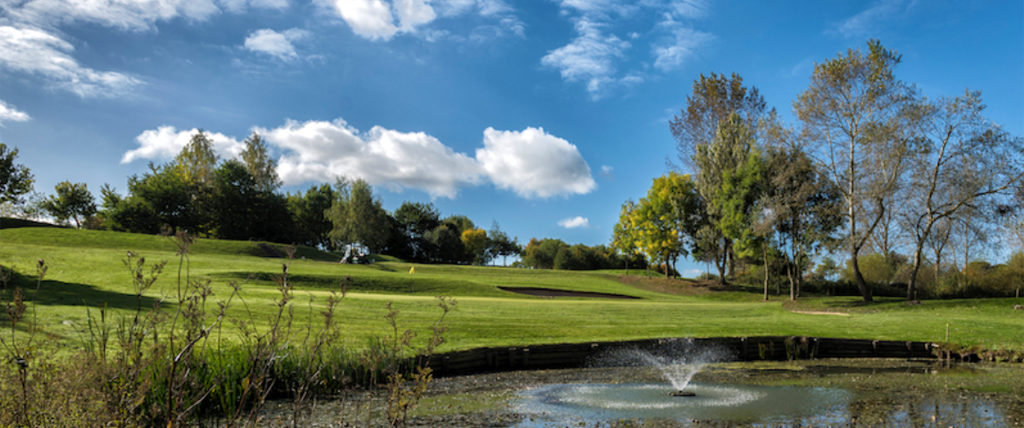
Ufford Park in Suffolk is on quite a heavy site, but they have managed to successfully introduce many araes of ecology rough around the course.
The focus of ecology rough has been on areas which are out of play, on the edge of the property or to create natural hazard.
- The team's cut and collect approach has been successful and they have done this very well and it really benefitted the site to give it more of a natural feel. The ecology rough is quite thin and playable in most areas, to really create a hazard but not be too penal.
- They had a large area on which they also undertook an Operation Pollinator project a few years ago to establish wildfloweers, and which has been very successful. It has been a great use of an out of sight area, and looks amazing when in flower.
- The also had another large area which was left to be more natural and which they did not cut and collect - which had lots of wildflowers in and lasted a little longer into the season.
- They have done a great job of developing the ponds and wetland areas on the course and also with the reservoir to ensure the water management areas are kept in good condition and rich with plants and wildlife. They have also worked hard to ensure that the gorse is well managed.
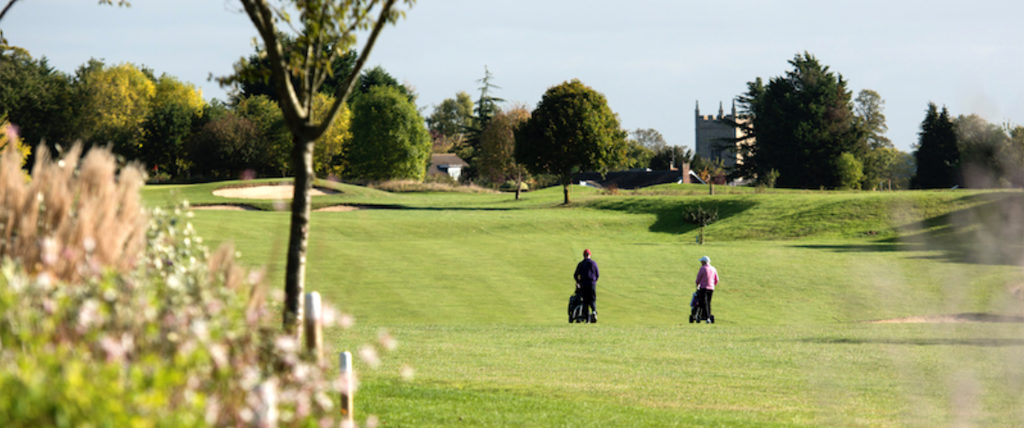
The Club has some amazing trees on the site, which really dominate and it would be good to see them focus on making them a real feature.

